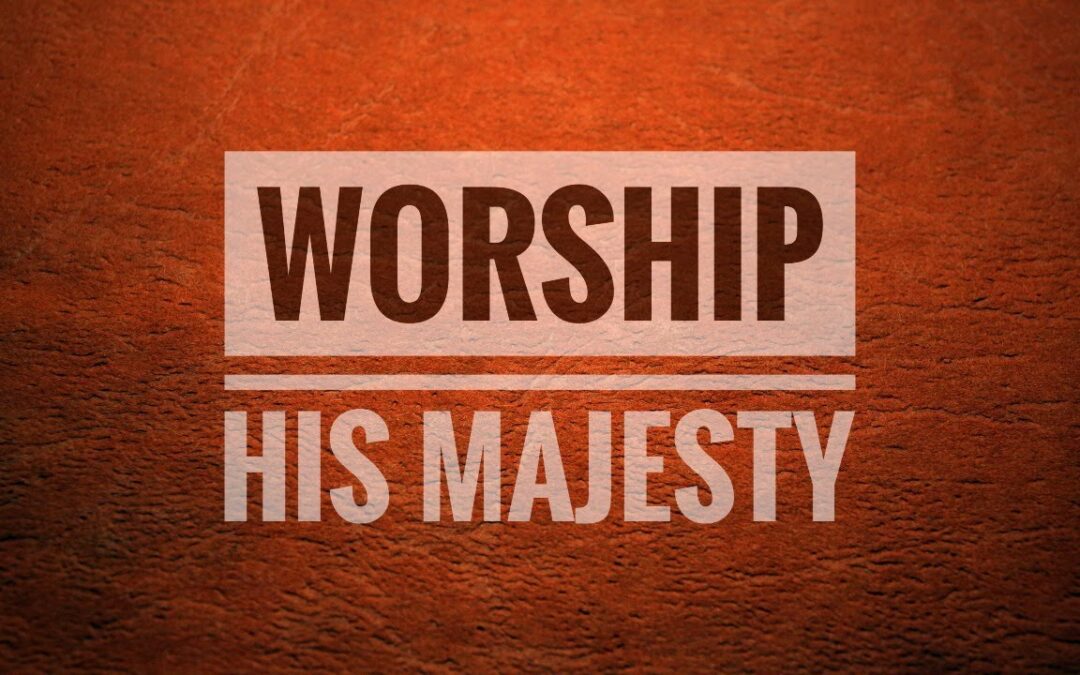“And when I saw him, I fell at his feet as dead. And he laid his right hand upon me, saying unto me, Fear not; I am the first and the last.” (Revelation 1:17)
In John’s vision of the enthroned King of heaven and earth, the overpowering glory of Christ which outshone the sun in full strength caused him to fall at his feet as dead. Indeed, John would have died if Christ had not laid his hand on him and said, “Fear not, I am the first and the last; I am he that lives, and was dead, and behold I am alive for evermore,” (Rev. 1:17-18).
Christ appeared to Saul in much the same way as he journeyed to Damascus to fulfill his mission of persecuting first century Christians. The brightness and intensity of Christ’s heavenly glory caused Saul to also drop to the ground as though he were dead. This encounter with the brilliant glory of the ascended Lord left Saul blind for a full three days (Acts 9).
Similar narratives are scattered throughout Scripture that cause us to stop and consider the sheer magnificence of the glorious Lord we worship and serve. Surely he is to be feared among his saints and held in reverence of all those who recognize his lordship. We are invited to come before him as the children of a king approach one who is both their awful sovereign and tender father. At the same time we do well to remember that even though God is our Heavenly Father and Christ our brother and closest companion, the distance between God’s divinity and our humanity is infinite.
Further, it is no small matter that whenever God’s presence was experienced in these biblical accounts, the weakness and frailty of those who encountered him was always made evident. Jacob wrestled with God and came away with a limp, though Scripture said he “prevailed” with God (Gen 32:28, 31). Paul was taken up into the third heaven and lived to record it. Yet from that point forward he says of himself, “I was given a thorn in my flesh, a messenger of Satan, to torment me,” (2 Cor. 12:7).
Thomas Manton said, “All those that received visions from him to teach his people, God would season them by leaving a stamp and impression of his excellency upon them.”[1] This was true for both the prophets and the disciples in order to fit them for the work of the Gospel. Before these servants could represent God’s glory and majesty to the world, it was necessary for them to have a special reverence and awe of God impressed on their own hearts and to have experienced the power of his supreme glory themselves. For “knowing the terror of the Lord, we persuade men,” (2 Cor. 5:11). God is of such majestic greatness that we are truly unable to bear any extraordinary revelations or representations of him in this state of frailty.
Contemplations:
- Lord, I should come humbly before you, considering who you are and what I am. I should approach you with a trembling and holy awe, for “who am I but dust and ashes, that I should speak unto God?” (Gen. 18:27).
- Lord, I must not seek to please myself with the performance of ordinary service to you, but I should raise the level of my service to an eminent degree of worship and adoration because as Psalm 48:1 states, “Great is the Lord and greatly to be praised.”
- Your greatness, O Lord, deserves a level of service far above that which we usually offer to you. Even then, my best resolutions and performances can never come close to the excellency and greatness of God.
- Lord, I serve a great Master, and so I may then expect great things from you. If I fully understand the expanse of your majesty, it should banish the fear of man in me (Matt. 10:28). For there is no God like you, and there is no God apart from you.
- Because of your excellence, majesty, and greatness, your ways should never be questioned by us, your creatures. You are great in counsel and wonderful in all your works. Such should keep me in a place of holy awe and reverence.
Further References for Rev. 1:17:
Rev. 22:13; Isa. 44:6; Isa. 48:12; Dan. 8:17; Matt. 14:27
[1] Thomas Manton, Christs Temptation and Transfiguration Practically Explained (London printed: 1685), 184.


